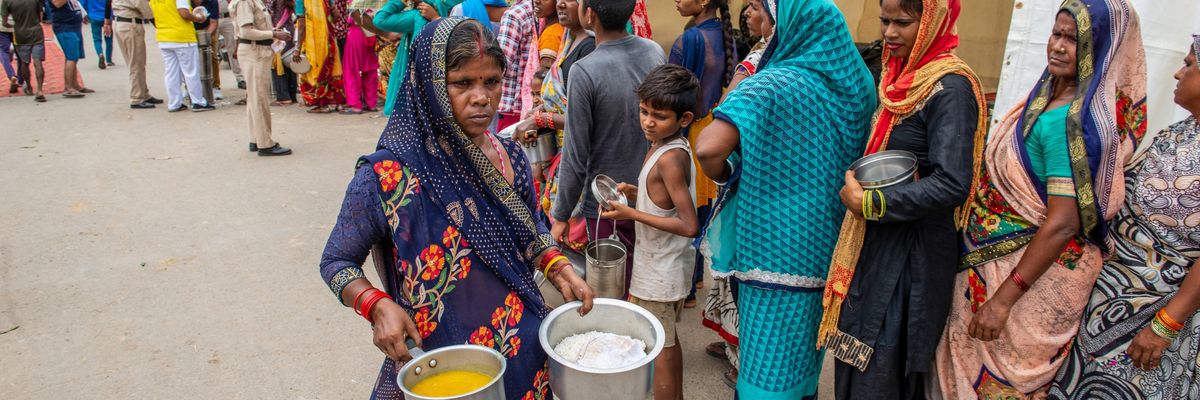People impacted by extreme heat can struggle to put food on their tables after just a few days—and not months as previously thought—research published Monday revealed.
The study, published in Nature Human Behaviour by Carolin Kroeger of University of Oxford's Department of Social Policy and Intervention (DSPI), shows for the first time how quickly food insecurity can hit households impacted by very hot weather.
"Usually, research focuses on a country level and the fact that heat damages crops, which can lead to food insecurity in months." Kroeger wrote. "But this research, at the household level, shows heat can lead to food insecurity in a matter of days."
"Rising temperatures are expected to stall progress on food insecurity by reducing agricultural yields in the coming decades," she added. "But hot periods may also increase food insecurity within days when it gets too hot to work and earn an income, thus limiting households' capability to purchase food."
Kroeger surveyed families in 150 countries "to show that heat is associated with higher food insecurity within days of exposure and that this increase is mediated by reductions in income and health with stronger effects in countries with lower incomes and higher shares of agricultural or precarious employment."
According to the study, if a country with the population of India—nearly 1.41 billion—"were to experience a particularly hot week, an additional 8.07 million people would be likely to experience moderate-to-severe food insecurity."
"The analyses suggest that these effects are mediated by worse health, declining local job markets, and tighter household budgets with stronger effects in regions with higher agricultural or vulnerable employment and lower incomes," the publication states.
"The results underline the importance of labor market disruptions and socioeconomic factors, such as precarious forms of labor, for food security and climate impact modeling," the study adds. "With the frequency, duration, and intensity of extreme heat days rising across the world due to climate change, researchers and policymakers across sectors should consider how the socioeconomic links between heat, health, income, and food insecurity can be integrated into research, heat action plans, food programs, and labor regulations."
DSPI professor Aaron Reeves said in a statement that "this paper greatly advances our understanding of the impacts of extreme heat on the lives of people subjected to it and will provoke important discussions about how to protect people in the climate emergency."
"Such research could not be more timely as the world experienced its hottest month on record in July," Reeves added.
According to the United Nations Food and Agriculture Organization (FAO), up to 828 million people—more than 10% of humanity—were considered food insecure last year. The U.N. World Food Program (WFP) estimates that over 345 million people in 79 nations are facing elevated hunger levels in 2023.
Earlier this year, FAO and WFP warned that "acute food insecurity is likely to deteriorate further in 18 hunger hot spots" in 22 nations from June to November.

